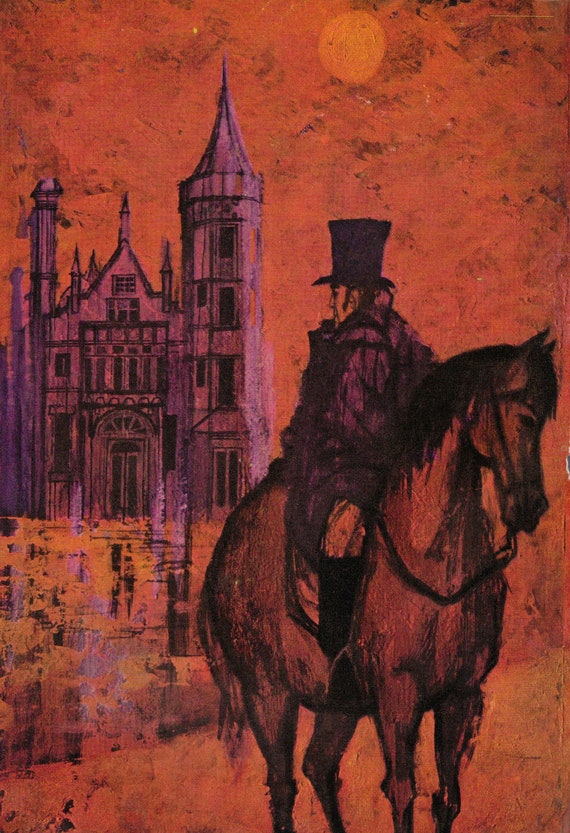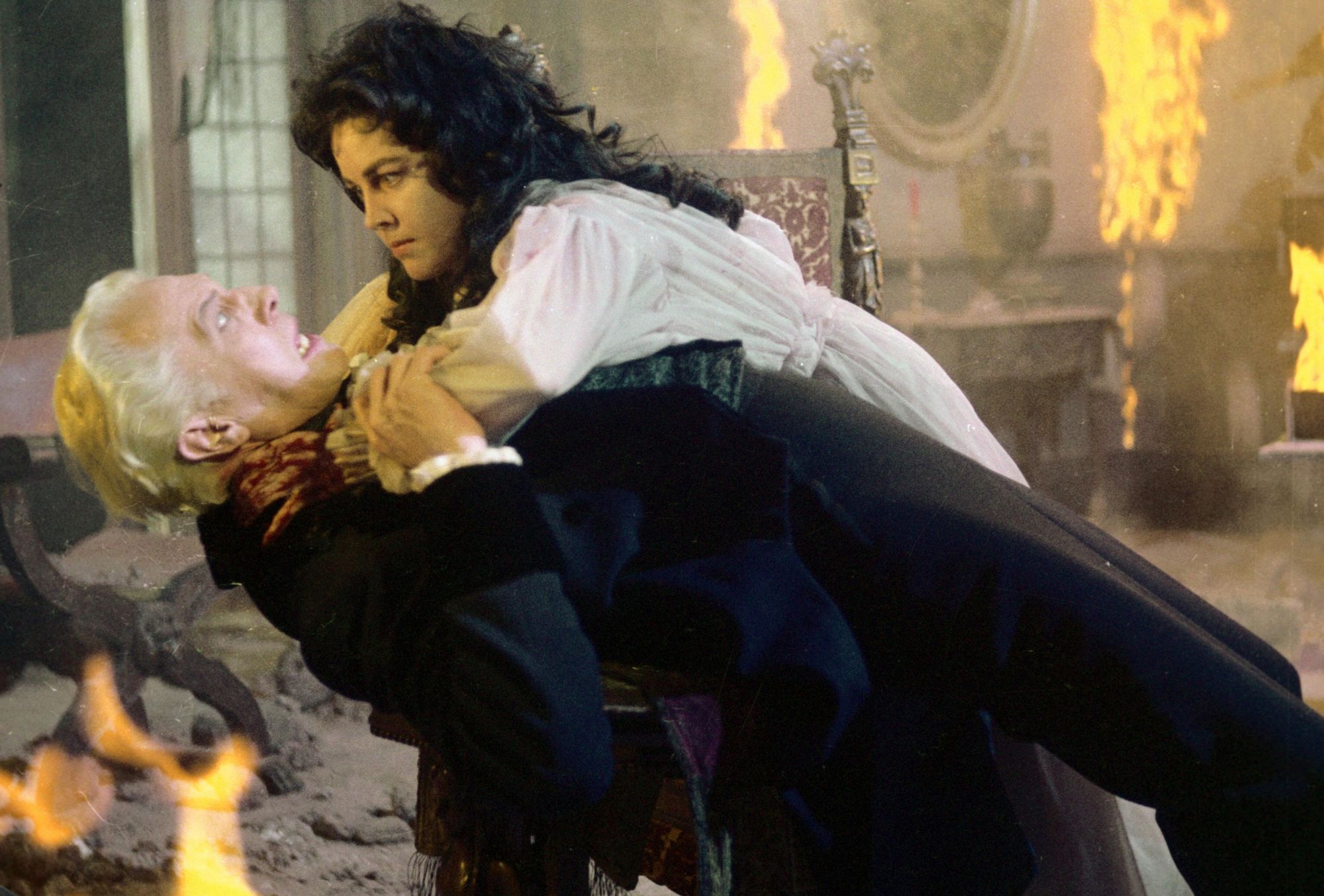Table Of Content

Roderick eventually declares that he has been hearing these sounds for days, and that they are being made by his sister, who was in fact alive when she was entombed. The narrator is mysteriously trapped by the lure of Roderick’s attraction, and he cannot escape until the house of Usher collapses completely. Characters cannot move and act freely in the house because of its structure, so it assumes a monstrous character of its own—the Gothic mastermind that controls the fate of its inhabitants. Poe, creates confusion between the living things and inanimate objects by doubling the physical house of Usher with the genetic family line of the Usher family, which he refers to as the house of Usher. Poe employs the word “house” metaphorically, but he also describes a real house.
Analysis
On a stormy autumn (with an implied pun on the word fall?) evening, a traveler—an outsider, like the reader—rides up to the Usher mansion. This traveler, also the first-person narrator and boyhood friend of Roderick Usher, the owner of the house, has arrived in response to a summons from Usher. Very soon we understand that, whatever else it may mean, the house is a metaphor for the Usher family itself and that if the house is seriously flawed, so are its occupants. The tale highlights the Gothic feature of the doppelganger, or character double, and portrays doubling in inanimate structures and literary forms.
Poe's Stories
Outside, he looks back just in time to see the house split in two and collapse. The Fall of the House of Usher, supernatural horror story by Edgar Allan Poe, published in Burton’s Gentleman’s Magazine in 1839 and issued in Poe’s Tales of the Grotesque and Arabesque (1840). For instance, it has sometimes been suggested that Roderick’s relationship with Madeline echoes Poe’s own relationship with his young wife (who was also his cousin), Virginia, who fell ill, as Madeline has.
Poe's Short Stories (SparkNotes Literature Guide)
He turns back in time to see the Moon shining through the suddenly widened crack in the house. As he watches, the House of Usher splits in two and the fragments sink away into the lake. Whether the reader is trapped by the house or by its inhabitants is unclear. Poe uses the term house to describe both the physical structure and the family. On the one hand, the house itself appears to be actually sentient, just as Roderick claims.
By undermining this fear of the outside, the narrator unwittingly brings down the whole structure. A similar, though strangely playful crossing of a boundary transpires both in “Mad Trist” and during the climactic burial escape, when Madeline breaks out from death to meet her mad brother in a “tryst,” or meeting, of death. Poe thus buries, in the fictitious gravity of a medieval romance, the puns that garnered him popularity in America’s magazines. ‘The Fall of the House of Usher’ is an 1839 short story by Edgar Allan Poe ( ), a pioneer of the short story and a writer who arguably unleashed the full psychological potential of the Gothic horror genre. The story concerns the narrator’s visit to a strange mansion owned by his childhood friend, who is behaving increasingly oddly as he and his twin sister dwell within the ‘melancholy’ atmosphere of the house.
Literary significance and criticism
The Fall Of The House Of Usher Ending & Meaning Explained - Screen Rant
The Fall Of The House Of Usher Ending & Meaning Explained.
Posted: Sat, 20 Apr 2024 13:00:00 GMT [source]
The narrator is impressed with Roderick's paintings and attempts to cheer him by reading with him and listening to his improvised musical compositions on the guitar. Roderick sings "The Haunted Palace", then tells the narrator that he believes the house he lives in to be alive, and that this sentience arises from the arrangement of the masonry and vegetation surrounding it. Further, Roderick believes that his fate is connected to the family mansion.
In literature
When his work was critically evaluated, it was condemned for its tendencies toward Romanticism. The writers and critics of Poe’s day rejected many of that movement’s core tenets, including its emphasis on the emotions and the experience of the sublime. Accordingly, commentaries on social injustice, morality, and utilitarianism proliferated in the mid-19th century. Poe conceived of his writing as a response to the literary conventions of this period.
Der Untergang des Hauses Usher
The story features numerous allusions to other works of literature, including the poems “The Haunted Palace” and “Mad Trist” by Sir Launcelot Canning. Poe composed them himself and then fictitiously attributed them to other sources. Both poems parallel and thus predict the plot line of “The Fall of the House of Usher.” “Mad Trist,” which is about the forceful entrance of Ethelred into the dwelling of a hermit, mirrors the simultaneous escape of Madeline from her tomb. “Mad Trist” spookily crosses literary borders, as though Roderick’s obsession with these poems ushers their narratives into his own domain and brings them to life. He makes his way through the long passages to the room where Roderick is waiting.
Popular pages: Poe’s Short Stories
The narrator, for example, first witnesses the mansion as a reflection in the tarn, or shallow pool, that abuts the front of the house. The mirror image in the tarn doubles the house, but upside down—an inversely symmetrical relationship that also characterizes the relationship between Roderick and Madeline. Madeline soon dies, and Roderick decides to bury her temporarily in the tombs below the house. He wants to keep her in the house because he fears that the doctors might dig up her body for scientific examination, since her disease was so strange to them.

Within a few hours of the narrator’s arrival, Roderick begins to share some of his theories about his family. Much to the narrator’s surprise, Roderick claims that the Usher mansion is sentient and that it exercises some degree of control over its inhabitants. According to Roderick, Madeline suffers from a cataleptic disease that has gradually limited her mobility. As Roderick talks about his sister’s illness, the narrator sees her pass through a distant part of the house. ‘The Fall of the House of Usher’ is probably Edgar Allan Poe’s most famous story, and in many ways it is a quintessential Gothic horror story.
Indeed, despite Poe’s distaste for Allegory, some critics view the house as a Metaphor for the human psyche (Strandberg 705). Whatever conclusion a reader reaches, none finds the story an easy one to forget. A storm begins, and Roderick comes to the narrator's bedroom (which is situated directly above the house's vault) in an almost hysterical state. Throwing the windows open to the storm, Roderick points out that the lake surrounding the house seems to glow in the dark, just as Roderick depicted in his paintings, but there is no lightning or other explainable source of the glow. At Roderick’s words, the door bursts open, revealing Madeline all in white with blood on her robes. With a moan, she falls on her brother, and, by the time they hit the floor, both Roderick and Madeline are dead.
Madeline also suffers from problems typical for women in -nineteenth--century literature. She invests all of her identity in her body, whereas Roderick possesses the powers of intellect. In spite of this disadvantage, Madeline possesses the power in the story, almost superhuman at times, as when she breaks out of her tomb. Some scholars have argued that Madeline does not even exist, reducing her to a shared figment Roderick’s and the narrator’s imaginations. But Madeline proves central to the symmetrical and claustrophobic logic of the tale.
For example, the narrator realizes late in the game that Roderick and Madeline are twins, and this realization occurs as the two men prepare to entomb Madeline. The cramped and confined setting of the burial tomb metaphorically spreads to the features of the characters. Because the twins are so similar, they cannot develop as free individuals. Madeline is buried before she has actually died because her similarity to Roderick is like a coffin that holds her identity.
No comments:
Post a Comment